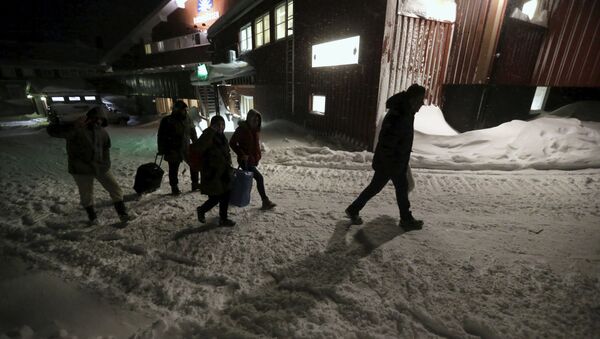In 2017, Sweden's Migration Board received 444 reports of human trafficking, 103 more cases than in the previous year, according to Kajsa Törnqvist Netz, the central coordinator against human trafficking at the Migration Board's quality department.
Of these, 213 cases involved human trafficking for sexual purposes, while another 161 victims were brought to Sweden for forced labor. A total of 256 of the victims were women, while 188 were men. Furthermore, the trafficking involved 107 minors, including 41 girls and 66 boys.
Once again, Nigeria produced the highest number of victims (48), followed by Afghanistan (41), Vietnam (33), Cuba (30), Iraq (18), Morocco (16) and Thailand (12).
Fortsatt ökat antal fall av människohandel https://t.co/ULaRIQCwHc #MigPol
— Migrationsverket (@Migrationsverk) January 16, 2018
The Migration Board attributed the increase in human trafficking to a drop in the number of asylum seekers in 2017. However, cases of human trafficking were identified in other categories, such as work permits and the extension of visits. The staff's increased proficiency in detecting suspicious cases was claimed to be another reason for the increase, as the authorities put an emphasis on employee training.
"However, it is unfortunate that the number of victims of trafficking in human beings is increasing," the Migration Board wrote.
In 2017, the acceptance rate of applications reached 83 percent. Syria became the most common country of origin of the new Swedish citizens, effectively surpassing Somalia. Under the Citizenship Act, applicants are not required prove their language skills, self-sufficiency or integration. For those with refugee status, only a two-year stay with proven identity is required.
READ ALSO: Minister Says Sweden Is Full, Advises Migrants to Seek Elsewhere
Tweeten om medborgarskap innehöll ett faktafel. År 2017 var det 83% av alla avgjorda ansökningar om svenskt medborgarskap som blev beviljade. pic.twitter.com/mmqWdnj1nm
— Migrationsverket (@Migrationsverk) January 16, 2018
Surprisingly, Georgia has become a major supplier of asylum seekers to Sweden after gaining the ability to travel freely in the Schengen Area in March 2017. After a marked increase in late autumn, Georgians are currently the second-largest group of asylum seekers in Sweden, with Germany, Switzerland and Austria all seeing an increase in Georgians as well. The Swedish Migration Board attributed this to employment opportunities in Sweden, coupled with an adverse economic situation in Georgia, and forecasted a continuation of the trend in the near future.
In recent years, Sweden, a nation of 10 million, received over 200,000 asylum seekers, predominantly from the Middle East as well as North and East Africa.
READ ALSO: Swedish Church Accused of Peddling 'Immigration Propaganda' During X-Mas Worship




